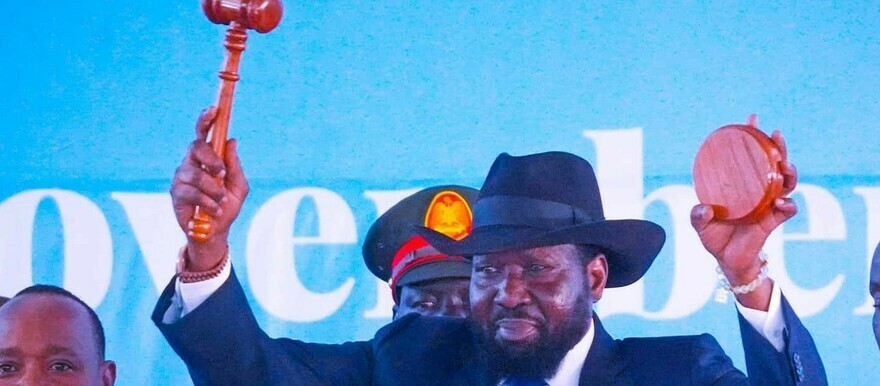The recent appointment of South Sudan’s President Salva Kiir as the chairperson of the East African Community (EAC) is a part of the rotational mandate for EAC member states. This responsibility brings with it certain obligations for the Republic of South Sudan to adhere to under the EAC Treaty.
To ensure compliance, South Sudan must make timely payments of their annual subscriptions and adhere to rulings from the East African Court of Justice (EACJ) and other EAC institutions. It’s imperative to note that President Kiir, as the chairperson, cannot simultaneously lead the Community and disregard decisions made by the institution he heads.
Currently, the Republic of South Sudan faces numerous cases at the EACJ, including financial claims exceeding one billion USD. To date, no defense has been filed, given the compelling evidence against the country. Another significant case involves the demolition of Nakasongola church, located behind the National Parliament.
Despite a court summons served to the Ministry of Justice and Constitutional Affairs last year, this year witnessed the demolition, contrary to Article 38(2) of the EAC Treaty. This article prohibits partner states from taking actions detrimental to dispute resolution or that might exacerbate the dispute. The demolition also raises concerns about interference with freedom of religion and property rights.
The recent Electoral Act passed by the National Parliament, granting the president the authority to appoint 5% of national MPs, is under challenge at the EACJ. The argument is that this decision imposes an unjustified restriction on democracy, good governance, and citizens’ fundamental rights to choose their Members of Parliament. This challenge asserts a violation of Article 6(d), 7(2), and 8(1)(c) of the Treaty, which enshrine principles of democracy, rule of law, accountability, transparency, and good governance.
Looking ahead, the EAC community, under President Kiir’s leadership, should prioritize amending the EAC Treaty to appoint more justices to the EACJ. Currently, each partner state is supposed to have two justices – one in the First Instance Division and one in the Appellate Division. However, the Republic of South Sudan and DRC Congo have only one justice each in the First Instance Division, with none in the Appellate Division. The Treaty amendment is crucial to address this imbalance, ensuring fairness and representation in the EACJ.
The community is likely to face a significant challenge under the Treaty due to the absence of stringent requirements for appointing Justices to the court. The calibre of the Judges is a cause for concern, as some individuals who may not qualify to be magistrates in certain jurisdictions within the region could potentially be deciding crucial issues related to regional governance, human rights, the rule of law, accountability, and social justice.
It is crucial that judges appointed to the East African Court of Justice (EACJ) undergo a competitive selection process while also ensuring regional equity. This approach is necessary to uphold the Jurisprudence of the Court.
Another noteworthy concern is the prolonged vacancy in the position of the Registrar of the EACJ designated for South Sudan. The position has remained unfilled for two years since December 2021, with no appointment made by South Sudan. Currently, the Deputy Registrar from the Republic of Rwanda is acting in the position.
It is essential for South Sudan to expedite the appointment process to prevent other countries, such as DRC or Somalia, from taking advantage of the vacancy. The principles of equity support those who are proactive rather than those who are inactive. It is hoped that our country will not continue to be inactive in filling the registrar position over the past two years.
The author, Wani Santino Jada, is a South Sudanese advocate and a seasoned litigator at the East African Court of Justice (EACJ).
The opinions expressed in this article are solely those of the author, and the responsibility for the veracity of any claims made rests with the author, not Radio Tamazuj.




